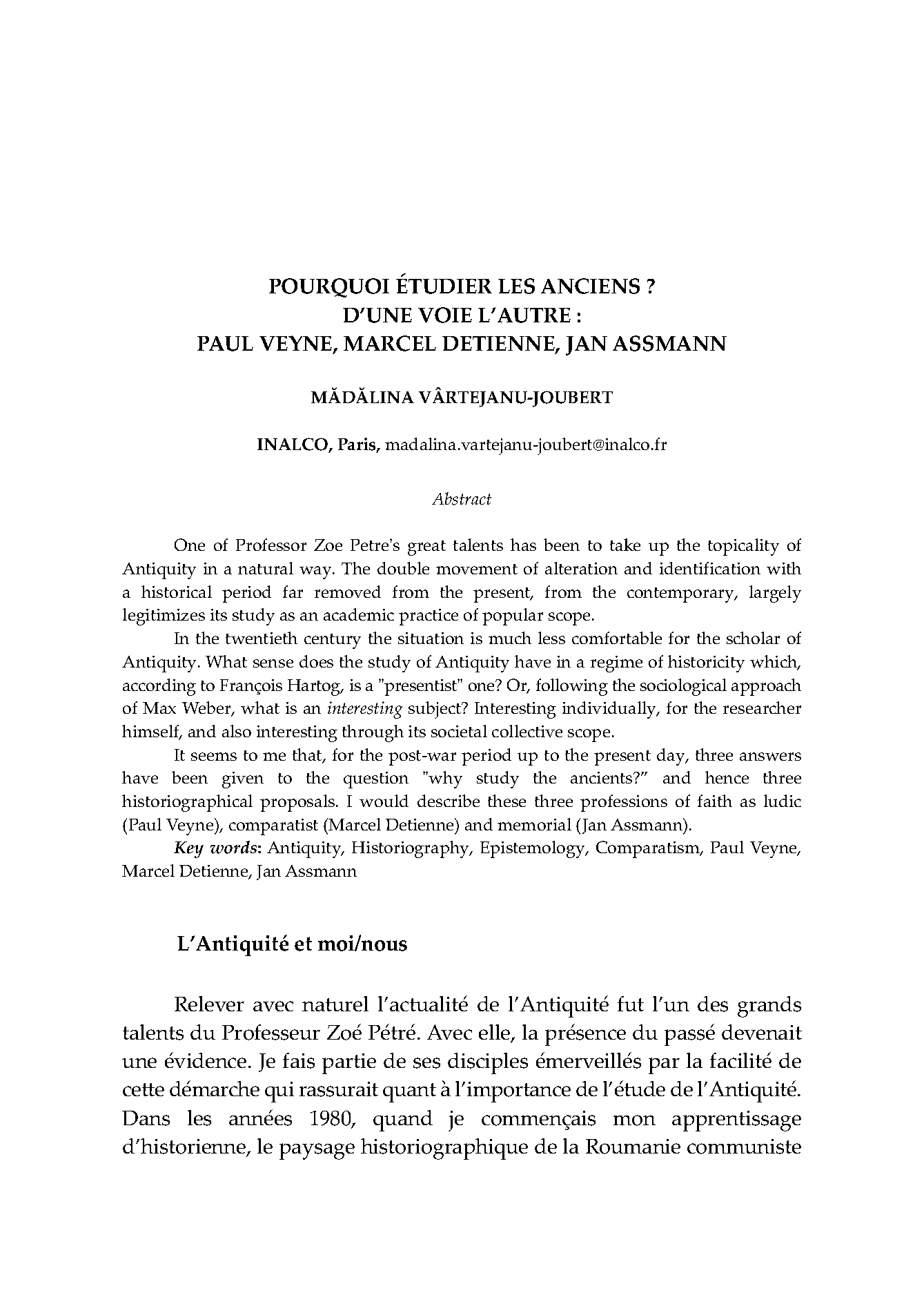POURQUOI ÉTUDIER LES ANCIENS ? D’UNE VOIE L’AUTRE : PAUL VEYNE, MARCEL DETIENNE, JAN ASSMANN
DOI:
https://doi.org/10.62229/aubi/69/1-2_20/4Cuvinte cheie:
Antiquity, Historiography, Epistemology, Comparatism, Paul Veyne, Marcel Detienne, Jan AssmannRezumat
One of Professor Zoe Petreʹs great talents has been to take up the topicality of Antiquity in a natural way. The double movement of alteration and identification with a historical period far removed from the present, from the contemporary, largely legitimizes its study as an academic practice of popular scope.
In the twentieth century the situation is much less comfortable for the scholar of Antiquity. What sense does the study of Antiquity have in a regime of historicity which, according to François Hartog, is a ʺpresentistʺ one? Or, following the sociological approach of Max Weber, what is an interesting subject? Interesting individually, for the researcher
himself, and also interesting through its societal collective scope. It seems to me that, for the post-war period up to the present day, three answers have been given to the question ʺwhy study the ancients?” and hence three
historiographical proposals. I would describe these three professions of faith as ludic (Paul Veyne), comparatist (Marcel Detienne) and memorial (Jan Assmann).




